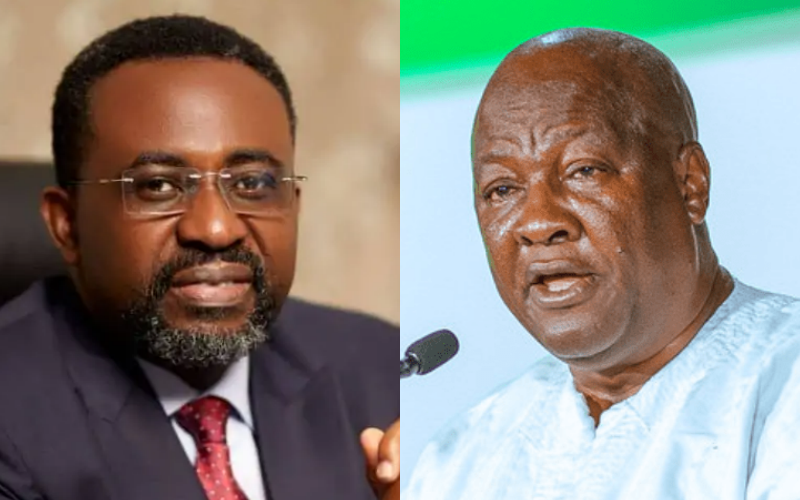The appointment of Dr. Johnson Pandit Kwesi Asiama as the new Governor of the Bank of Ghana, along with Dr. Zakari Mumuni as his First Deputy, marks a significant turning point in Ghana’s monetary policy and economic management. President John Dramani Mahama has emphasized that these appointments are not merely procedural but represent a deliberate commitment to restoring monetary stability and fostering sustainable economic growth. This commitment follows a period of controversy surrounding the Bank of Ghana’s actions under the previous administration, specifically the printing of significant sums of money without parliamentary approval – GH¢35 billion in 2021 and GH¢42 billion in 2022. This practice, which was used to finance the former Akufo-Addo government, drew sharp criticism from the then-opposition National Democratic Congress, prompting calls for accountability and reform within the central bank. President Mahama’s explicit assurance that he will not direct the new Governor to print money without parliamentary approval underscores a commitment to transparency and fiscal responsibility.
President Mahama’s directive to the new leadership of the Bank of Ghana extends beyond a simple commitment to fiscal prudence. He has charged them with a broader mandate to recognize the human impact of their decisions. He emphasized that economic indicators are not merely abstract data points but represent the lived experiences of the Ghanaian people, reflecting the nation’s economic health and the well-being of its citizens. This perspective underscores a focus on people-centered economic policy, prioritizing the impact of monetary decisions on the lives of ordinary Ghanaians. This approach signals a shift in the Bank of Ghana’s focus, placing a greater emphasis on the social and economic consequences of its actions, moving beyond purely technical considerations.
The new Governor, Dr. Asiama, brings considerable experience to his role, having previously served as the Bank’s Deputy Governor. He has outlined a clear agenda for his tenure, promising to address key challenges facing the Ghanaian economy, particularly the volatility of the foreign exchange market. One of his key priorities is the establishment of a new foreign exchange law aimed at curbing currency speculation and stabilizing the exchange rate. This initiative is crucial for bolstering investor confidence and creating a more predictable economic environment. Exchange rate instability has been a persistent concern for businesses and individuals, impacting import costs, inflation, and overall economic planning. Dr. Asiama’s commitment to addressing this issue signals a proactive approach to managing the complex dynamics of the foreign exchange market.
The previous administration’s approach to monetary policy, particularly the printing of money without parliamentary oversight, raised concerns about the independence and accountability of the central bank. The significant sums injected into the economy, while intended to address immediate fiscal needs, also contributed to inflationary pressures and undermined public trust in the Bank of Ghana. President Mahama’s pledge to respect the Bank’s independence and adhere to legal processes regarding monetary policy signifies a renewed commitment to institutional integrity and transparency. This commitment aims to restore confidence in the central bank and strengthen its role in managing the national economy.
Dr. Asiama’s promise to introduce a new forex exchange law demonstrates a proactive stance toward tackling the challenges within the foreign exchange market. The proposed law aims to address the root causes of currency speculation and exchange rate volatility, creating a more stable and predictable environment for businesses and investors. By establishing clear regulations and mechanisms for managing foreign exchange transactions, the new law seeks to reduce speculative activities and promote transparency in the market. This initiative is crucial for attracting foreign investment, stabilizing prices, and fostering sustainable economic growth.
The transition in leadership at the Bank of Ghana represents a significant opportunity to reshape monetary policy and address the underlying economic challenges facing the country. President Mahama’s emphasis on fiscal responsibility, transparency, and the social impact of economic decisions sets a new tone for the central bank’s operations. Dr. Asiama’s experience and commitment to implementing reforms, such as the new forex exchange law, offer a promising path towards greater economic stability and sustainable growth. The focus on strengthening institutional integrity and public trust in the Bank of Ghana is essential for creating a more robust and resilient economy. This new era of monetary policy holds the potential to significantly impact the lives of ordinary Ghanaians, fostering greater economic opportunity and prosperity.


